Hello, Stargate and Apophis fans: 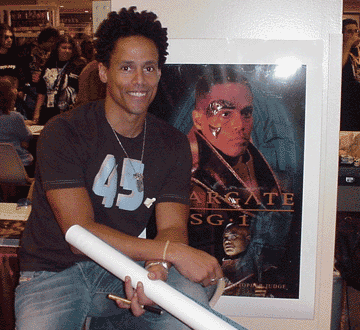
On Sunday September, 30, 2012 we will be honored to interview a much loved and feared actor from Stargate SG-1, Peter Williams who has just recently returned from an extended stay in the Caribbean as he has written about at his blog and on his Facebook account!
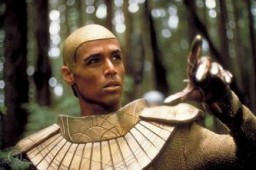 We will learn why he was there and what he is up to now as we talk to the man who made Apophis the very first System Lord we loved to hate, Mr. Peter Williams, in an exclusive interview at a special time this Sunday at 3PM Eastern and 12PM Pacific.
We will learn why he was there and what he is up to now as we talk to the man who made Apophis the very first System Lord we loved to hate, Mr. Peter Williams, in an exclusive interview at a special time this Sunday at 3PM Eastern and 12PM Pacific.
Family History, A Lost Art
How much do you know about your grandparents? How much do you know about your great grandparents? I will bet it is not very much, or, a lot less than you would like to know. Despite more resources than ever to help those interested in searching their family roots, fewer and fewer people know anything about their ancestry.
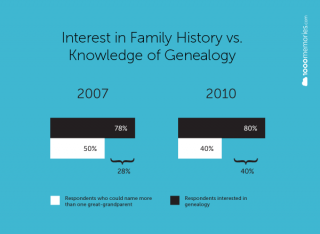 The reasons are not well defined, but surveys suggest families are interested in their family history, but with busy lifestyles, many do not have time to spend researching the wheres, whys and whos of their own family. Other families rank genealogical research of much lower importance than other family activities.
The reasons are not well defined, but surveys suggest families are interested in their family history, but with busy lifestyles, many do not have time to spend researching the wheres, whys and whos of their own family. Other families rank genealogical research of much lower importance than other family activities.
Why would you want to learn more about your family history? Understanding our family history can provide strength and insight in our lives today. For example, a young man named Alex from Detroit, Michigan, explained that he did not like who he was and was not interested in learning anything more about his past than he already knew. He knew that his single mother gave him away when he was only 2 years old. “A boy has got to be pretty bad for a mother to give him up when he’s 2 years old” Alex claimed.
But when Alex found his biological grandmother and learned his mother’s story, he discovered the circumstances that helped him come to terms with why things happened the way they did. He also discovered some impressive things his grandfather and great-grandfather did while living in California. Alex reflected that, “Learning what I did about my blood relatives gave me a sense of belonging to someone, to a family of people who were good people, creative people. It helped me understand that I am a good person. I have a bright and creative mind. My grandfather and great-grandfather showed me what kind of man I can become because I have a part of them inside me. I have something to be proud of. That means a lot to me because now I know I’m OK.”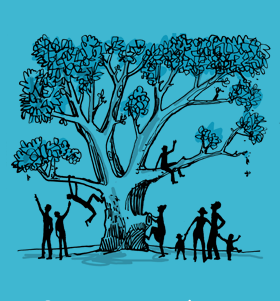
Other benefits to knowing our ancestors a bit more have been studied in the psychological community. According to Peter Fischer from the University of Graz in Austria, ” we can gain strength from our ancestors. Remembering them can even help us get a new job – but only if we actually want one, of course”.
It seems that if we are – say – going for an interview or an important exam we can give our chances of success a boost by first spending a few minutes thinking about our ancestors. Perhaps of our grandad doing his bit during one of the world wars for example.
Okay, it may sound a bit strange at first but this so called ‘ancestor effect’ works as a reminder to the brain, or mind, that difficult hurdles can be overcome – as grandad proved during his part in the war.
There were tests undertaken on 80 volunteers. It was found that there was a definite improvement among those who, before the tasks were performed, were asked to consider what previous generations of their families had endured.
Researcher Peter Fisher told the European Journal of Social Psychology, “Our ancestors managed to overcome a multitude of problems, such as severe illnesses, wars, loss of loved ones or severe economic declines. When we think about them we are reminded that humans who are genetically similar to us can successfully overcome a multitude of problems.”
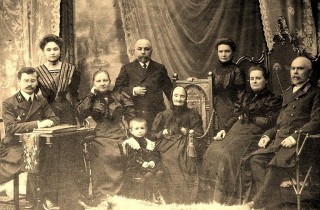 So there we go, our ancestors can come to our aid in an indirect, or maybe even a direct way. Mind you, many old races believe in the power of their ancestors. Perhaps this research isn’t exactly groundbreaking after all.
So there we go, our ancestors can come to our aid in an indirect, or maybe even a direct way. Mind you, many old races believe in the power of their ancestors. Perhaps this research isn’t exactly groundbreaking after all.
So what is the first step you need to take? Actually, it is very easy – write down everything you know about yourself and your family! Focus on full names, dates of birth, marriage and death, and where these events occurred – geography will play an important part in your research as you attempt to locate relatives who may not be familiar to you.
Once you have exhausted your own personal store of knowledge, it is time to talk to the family. Start with parents, uncles and aunts and then work back a generation if you can, remembering to exercise diplomacy and tact when you ‘interview’ them. The aim is always to find out names, dates and places, and if you are lucky you might be able to compile information about your grandparents’ grandparents, people you are unlikely to have met.

It might also be worthwhile taping, recording of even filming your interviews, though of course you should always seek permission first. If your relatives agree to it, the recording will make an important family heirloom that can be passed on from generation to generation. You may find some of your relatives are reluctant to talk about aspects of their lives, and this is when you have to remember that there are some things that will be off limits. While we are naturally curious about things that have happened to our nearest and dearest, we can easily forget that these events may bring back painful memories. One way around this problem is to tactfully request that your relative writes down their memories so that they can be read after they have left us.
Of course, you cannot simply take what you have been told at face value – an important part of the research process will be to verify what you have heard. Dates and events can often get muddled with the passing of time, and the use of pet names can cause great confusion. For example, Uncle Jack Smith may well have been born 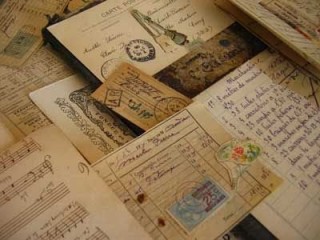 Michael John Smith; and non-relatives are often accorded ‘uncle’ or ‘aunt’ status, so be prepared to do a bit of pruning of your family tree.
Michael John Smith; and non-relatives are often accorded ‘uncle’ or ‘aunt’ status, so be prepared to do a bit of pruning of your family tree.
The same applies to stories you might hear during your conversations, and where possible try to compare as many different versions of an event as you can – where tales start to overlap, there is likely to be a grain of truth, and it will be your task to investigate later on.
Once you have obtained as much oral history about your family as you can, it’s time to widen the search to include physical objects. You will be amazed at the amount of documentation you can uncover simply by asking to look through drawers, boxes and files – one person’s trash is another person’s treasure! In particular, keep an eye out for personal documents – certificates of births, marriages and deaths, wills, employment records, pension payments, military service papers and other documents of interest.
However, this will be only part of the picture, so to speak, as you should also keep an eye out for photographs. It is worth talking to your relatives to see if they can name any of the people, and make sure you then note down who the people are – either on the back of a copy in pencil, or by scanning the photo into your computer and labeling it. Letters are another incredibly personal source of information, so once again use your diplomatic skills when asking about family correspondence. Keep an eye out for other objects of interest – family heirlooms such as bibles sometimes have entire family trees inscribed inside the cover. All of these items are part of your personal heritage, and will have their own story to tell about their former owners.
Once you have gathered together as much information as you can, it is time to arrange it into a family tree. Essentially, this is a map of your roots, a diagram that shows at a glance how your family are related to one another. Start with a large, blank sheet of paper and write your name, including all relevant biographical details, such as date of birth. If you are married, your husband / wife sits alongside you on the tree, linked with either ‘m’ or ‘=’, standard symbols that denote marriage.
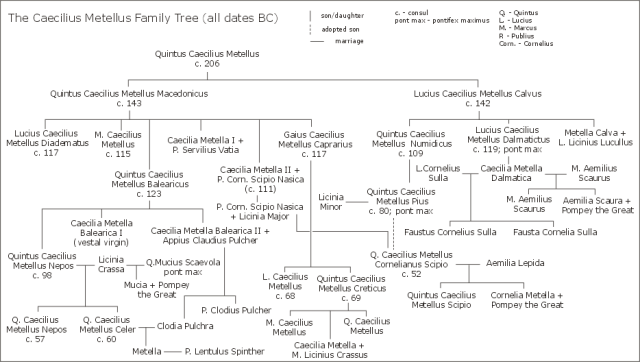
Any children go underneath you, connected to you with a line; include their dates of birth as well, marked ‘b’ for born. They are the generation below you. Above you go the names and relevant dates of your parents, and above them go your grandparents. As you work up the tree, you are going back in time, generation by generation, and doubling the number of direct ancestors you find. Therefore you have four grandparents, 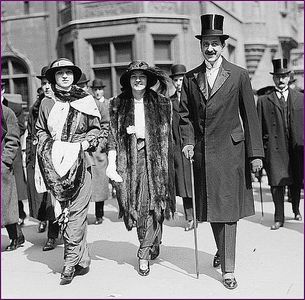 eight great-grandparents, sixteen great-great grandparents, and so on.
eight great-grandparents, sixteen great-great grandparents, and so on.
You may be surprised how little information you know about some of these people, and may simply know a name and possibly a date of death (marked ‘d’). This is the whole point of drawing up a family tree, as it makes you realise where the gaps in your knowledge lie, and this will help you to develop a research plan.
There will be times when you grind to a halt and hit the dreaded brick wall in your research. Do not despair! There are plenty of ways to get assistance. For a start, there are numerous books, magazines and trade journals in circulation that offer advice and practical tips about all aspects of family history.
If you want to discover on line resources, there are many links to national, provincial and state archives as well as free Latter Day Saints (Mormon) databases. The Mormons have the largest genealogical resource database in the world.
Good luck with your research.
 Thanks to Kenn for final staging of the audio and images in this news article and thanks to you for stopping by WormholeRiders News Agency!!
Thanks to Kenn for final staging of the audio and images in this news article and thanks to you for stopping by WormholeRiders News Agency!!
We look forward to seeing you for our exclusive interview with Jennifer Spence this Sunday 12 PM PST 3 PM EST!
Please feel free to leave a comment here, click an icon below to share this interview with your friends, or you can visit and follow me on Twitter by clicking on my avatar to the right.
Regards,
Thank you.
ArcticGoddess1 (Patricia)
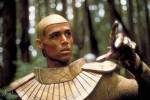
Hello Peter and Patricia!
Very much looking forward to an exciting interview tomorrow to learn about Peter’s journey regarding his family history!
Thank you Mr. Williams!
Great article Patricia!
Best Regards,
Kenn